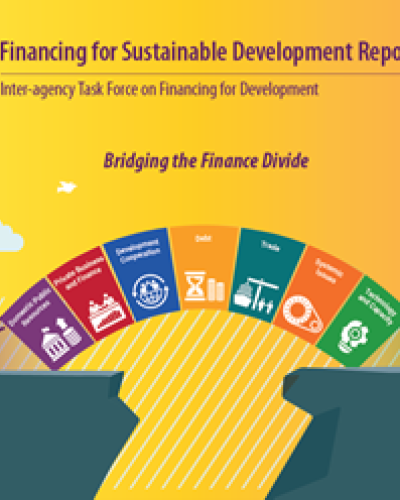Financing for Sustainable Development Report 2022

The great finance divide leaves developing countries unable to respond to crises and invest in sustainable development. On average, developed countries use 3.5 per cent of revenue to pay interest on their debt, versus 14 per cent of revenue for the least developed countries. About 60 per cent of LDCs and other low-income countries are now assessed at a high risk of or in debt distress, double the 30 per cent in 2015. The Ukraine conflict is compounding stresses, through higher energy and commodity prices, renewed supply chain disruptions, higher inflation coupled with lower growth, and increased volatility in financial markets.
The 2022 FSDR recommends three sets of actions that can help to make progress in bridging the finance divide. First, the report calls for urgent measures to address financing gaps, rising costs of borrowing and heightened debt risks. There is a need to increase public financing for investment in public policy priorities and effectively spend mobilized resources on the SDGs and productive investment. The international community should work to reduce borrowing costs and volatility from commercial sources; and address debt overhangs to reduce debt burdens.
Beyond urgent actions, all financing flows must be aligned with sustainable development. We must address climate change and inequalities head on to preserve economic prospects. Finally, enhanced transparency and a more complete information ecosystem will strengthen the ability of countries to manage risks and use resources well and in line with sustainable development.













